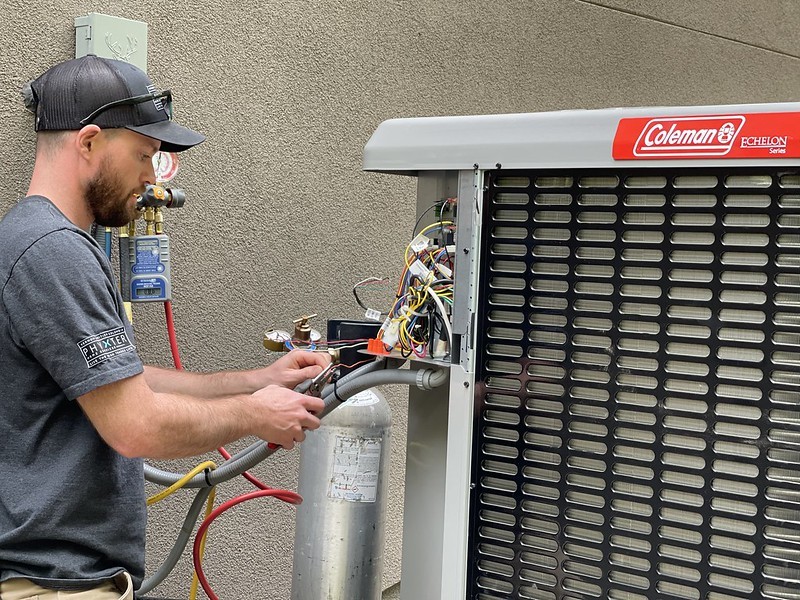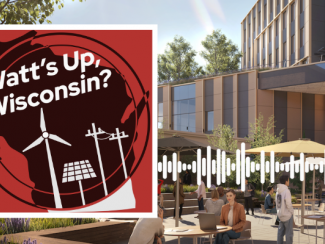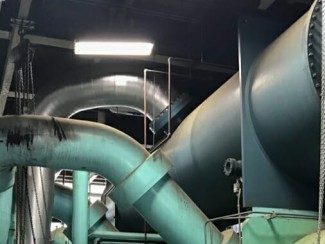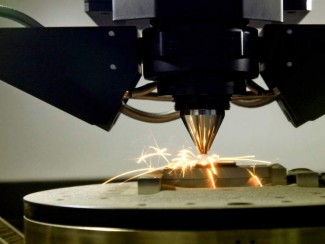WEI co-investigator Mike Wagner and affiliate Morgan Edwards are collaborating with mechanical engineering professor Allison Mahvi and industry partners to develop a market-ready heat pump that can directly replace a natural gas boiler in buildings with hydronic heating systems with minimal changes to building infrastructure

Faculty with the Wisconsin Energy Institute are working with a mechanical engineering professor and industry partners to develop more sustainable heating systems for older buildings.
Mechanical Engineering Assistant Professor Allison Mahvi was recently selected for a $2 million award from the Department of Energy to develop a market-ready heat pump that can directly replace a natural gas boiler in buildings with hydronic heating systems with minimal changes to building infrastructure.
Mahvi is collaborating with UW-Madison colleagues Mike Wagner and Morgan Edwards, along with heating and air conditioning manufacturer Trane; Slipstream, a Madison-based climate solutions firm; and the National Renewable Energy Laboratory.
“This is an exciting project,” says Mahvi. “It could have an immediate and tangible impact on carbon emissions from many older buildings in Wisconsin. Our proposed system will provide buildings with traditional boilers an opportunity to economically and efficiently electrify, reducing CO2 emission by up to 75% by 2030. This project is specifically focused on older buildings, which are often overlooked when developing more sustainable heating and cooling systems. I’m excited to find better electrification solutions for the full range of buildings in the US.”
Edwards adds: “Low-income residents and renters are more likely to live in older, multi-family buildings that are difficult to electrify. This project provides an opportunity to fill an important gap in the market and provide direct benefits to underserved communities in our state and beyond. It’s the Wisconsin idea in action.”




